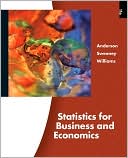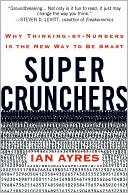Behavioral Game Theory: Experiments in Strategic Interaction
Search in google:
"Colin Camerer's Behavioral Game Theory fills an important niche in the literature. It brings together and synthesizes a large body of experimental and theoretical work on multi-person interactions, in psychology as well as economics. The result is a theory of games enriched by empirical knowledge and significantly closer to what is needed for applications. Camerer's book will make an outstanding principal or supplementary text for graduate or advanced undergraduate courses in game theory and experimental economics."--Vincent Crawford, University of California, San Diego"Behavioral economics has become very popular and of growing interest both within economics and in social science more generally. It integrates the rational maximizing behavior characteristic of economic models with objectives and beliefs characteristic of sociology and psychology in new and useful ways. Thus, it is increasingly relevant in framing issues such as tax policy, income redistribution, auctions, crime, and drug addiction. In this excellent and welcome work, Behavioral Game Theory, Colin Camerer brings his impressive breadth of knowledge to bear on the behavioral economics of strategic interaction, and thus on the field itself. This book will induce scholars, graduate students, and young social scientists alike to work in this burgeoning and exciting area of intellectual pursuit."--Herbert Gintis, University of Massachusetts and the Santa Fe Institute"Colin Camerer's Behavioral Game Theory is a major achievement. Nothing like it is available thus far, and the author is uniquely qualified to have written it. He has an impressive understanding of both psychology and economics. He has taken the trouble to 'talk through' hundreds of tricky arguments that elsewhere just get stated mathematically. Rarer still is his positive attitude toward modeling, experimentation, econometrics, and other methodologies. If his book invests others with the same open-minded, synergistic outlook, that alone would make it worthwhile."--David G. Pearce, Yale University"This is a terrific book. I cannot recommend it highly enough. In addition to its substantive findings, it contains a wealth of wise methodological insights, generously sprinkled with relevant and stimulating anecdotes."--Jon Elster, Columbia University"Behavioral economics has won whatever intellectual war was fought. It has won in the sense that it has been shown to be superior to the conventional alternatives wherever there has been an evidentiary contest. In a deeper sense, however, there was no war-simply standard science, in which the current generation of scholars builds on and expands the work of previous generations. The work of implementing these advances has only begun. This book explains the nature of the advances to those in economics who were locked away in their workshops while the intellectual contest was being waged and may be unaware of what has happened."--Henry J. Aaron, The Brookings Institution"It is certainly time that a book such as this be published. This volume will be a 'one-stop shop' for learning about behavioral economics and is likely to be adopted in graduate course in behavioral economics (and may even encourage people to offer such a course). The introductory chapter does a good job of explaining the enterprise, behavioral economics, and providing some history and context."--Linda Babcock, Carnegie Mellon University, coauthor of Women Don't Ask
Preface1Introduction11.1What is Game Theory Good For?51.2Three Examples71.3Experimental Regularity and Behavioral Game Theory20App. A1.1Basic Game Theory25App. A1.2Experimental Design342Dictator, Ultimatum, and Trust Games432.1Ultimatum and Dictator Games: Basic Results482.2Methodological Variables592.3Demographic Variables632.4Culture682.5Descriptive Variables: Labeling and Context742.6Structural Variables752.7Trust Games832.8Theory1013Mixed-Strategy Equilibrium1183.1Early Studies1213.2Modern Studies1253.3Subjective Randomization and Mixed Strategies1343.4Explicit Randomization1383.5Patent Race and Location Games with Mixed Equilibria1423.6Two Field Studies1454Bargaining1514.1Unstructured Bargaining1534.2Structured Bargaining1614.3Bargaining under Incomplete Information1825Dominance-Solvable Games1995.1Simple Dominance-Solvable Games2035.2Beauty Contest Games2095.3Games in Which Iterated Reasoning Decreases Payoffs2185.4When More Iteration is Better: The "Dirty Faces" Game2365.5The "Groucho Marx" Theorem in Zero-Sum Betting2395.6Structural Models of Decision Rules and Levels of Reasoning2425.7Theories254AppRaw Choices in Email Game and Additional Data2596Learning2656.1Theories of Learning2666.2Reinforcement Learning2736.3Belief Learning2836.4Imitation Learning2956.5Comparative Studies2986.6Experience-Weighted Attraction (EWA) Learning3046.7Rule Learning3246.8Econometric Studies of Estimation Properties3307Coordination3367.1Matching Games3417.2Asymmetric Players: Battle of the Sexes3537.3Market Entry Games3677.4Payoff-Asymmetric Order-Statistic Games3757.5Selecting Selection Principles3967.6Applications: Path-Dependence, Market Adoption, and Corporate Culture399AppPsycholinguistics4058Signaling and Reputation4088.1Simple Signaling Games and Adaptive Dynamics4118.2Specialized Signaling Games4278.3Reputation Formation4459Conclusion: What Do We Know, and Where Do We Go?4659.1Summary of Results4669.2Top Ten Open Research Questions473AppDesign Details477References497Index535








